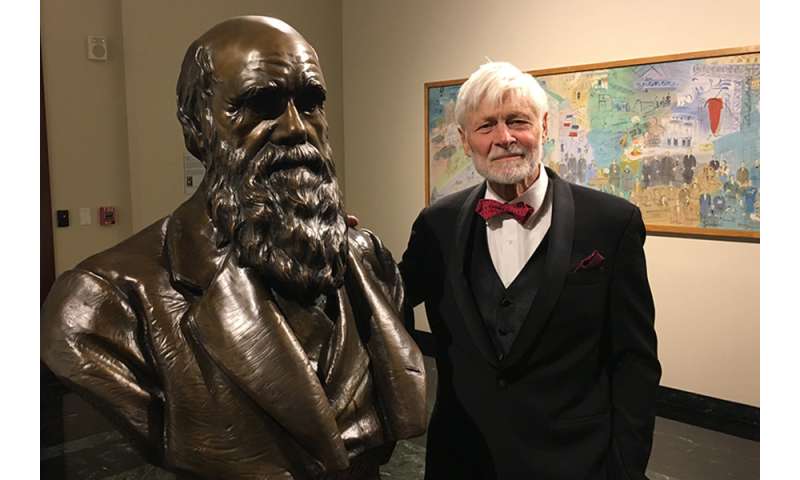Barry Voight elected to National Academy of Engineering

Barry Voight, professor emeritus of geology and geological engineering, Penn State, is among 84 new members and 22 foreign associates elected to the National Academy of Engineering.
Voight was elected for his contributions to the "understanding, management and mitigation of geologic hazards." He was formally inducted during a ceremony held on Oct. 8 at the NAE's annual meeting in Washington, D.C.
Election to the academy is among the highest professional distinctions in the field of engineering. According to the NAE, membership honors outstanding contributions to "engineering research, practice or education, including, where appropriate, significant contributions to the engineering literature" and "the pioneering of new and developing fields of technology, making major advancements in traditional fields of engineering, or developing/implementing innovative approaches to engineering education."
"Barry's expertise in volcanology is only matched by his deep concern for those affected by volcanic eruptions and his willingness to engage students in his expeditions," said Lee Kump, dean of the College of Earth and Mineral Sciences. "He's been Penn State's version of Indiana Jones for more than 50 years."
Voight has had an active international practice in engineering geology and geotechnics, hazards management and forensic work, specializing in slope failures and foundation problems. He has served as consultant for U.S. government agencies and holds an adjunct appointment with the U.S. Geological Survey as a member of the Volcano Hazards Team.
At Mount St. Helens in 1980 he recognized the potential for a large-scale edifice failure and eruption, and worked on the post-disaster response. At Nevado del Ruiz in Colombia he evaluated why the disaster prevention measures had failed, resulting in 23,000 deaths. He made a series of contributions at Merapi volcano in Indonesia, including a study in human survival in volcanic eruptions and the causes of thermal injuries, and emergency management. And at Montserrat, West Indies, he was a senior scientist since 1996 with the British Geological Survey, led the CALIPSO project on volcano monitoring and an offshore-onshore tomography experiment, and was active on the U.K. Scientific Advisory Committee guiding the U.K. and Montserrat management response.
"I was of course delighted to learn of this award from the National Academy," said Voight. "It's a wonderful honor, but also carries the responsibility to contribute to society. I hope to continue to work to learn from previous disasters, and to anticipate new events and then take steps before they can happen."
Voight originated the anelastic strain recovery method for deep rock stress measurements, developed methods to anticipate material failure, and adapted these methods to use geodetic and seismic data for the time prediction of ground failure, landslides and volcanic eruptions. His recent work includes collaboration with Augusto Neri and colleagues at the INGV Italy on computational fluid dynamics modeling of volcanic blasts.
Provided by Pennsylvania State University